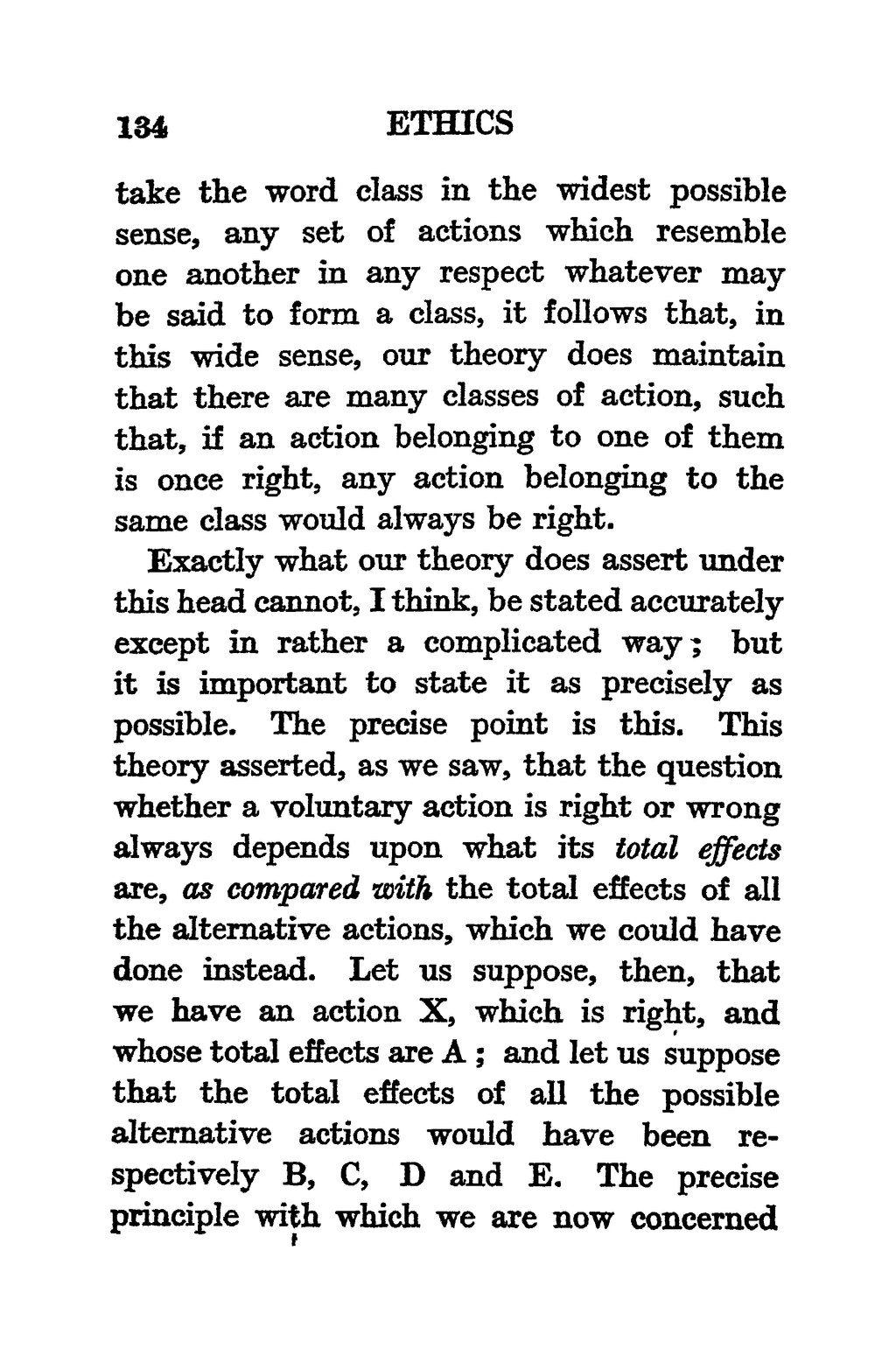take the word class in the widest possible sense, any set of actions which resemble one another in any respect whatever may be said to form a class, it follows that, in this wide sense, our theory does maintain that there are many classes of action, such that, if an action belonging to one of them is once right, any action belonging to the same class would always be right.
Exactly what our theory does assert under this head cannot, I think, be stated accurately except in rather a complicated way; but it is important to state it as precisely as possible. The precise point is this. This theory asserted, as we saw, that the question whether a voluntary action is right or wrong always depends upon what its total effects are, as compared with the total effects of all the alternative actions, which we could have done instead. Let us suppose, then, that we have an action X, which is right, and whose total effects are A; and let us suppose that the total effects of all the possible alternative actions would have been respectively B, C, D and E. The precise principle with which we are now concerned
